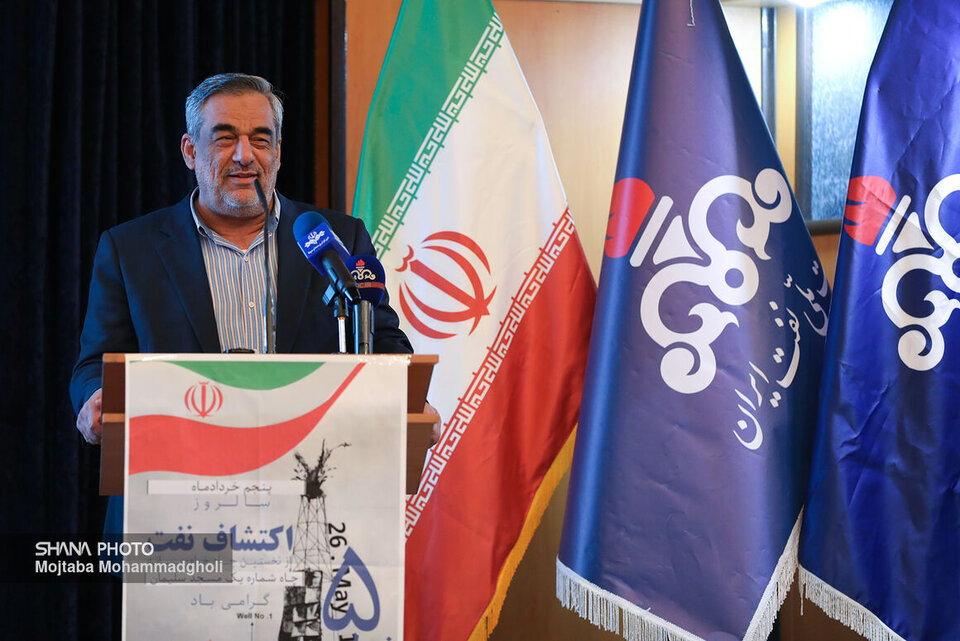Speaking Monday at a ceremony marking the anniversary of oil discovery in Iran, Hamid Bovard emphasized that exploration is the first link in the oil and gas production chain.
"Iran’s exploration history is illustrious and proud," he said. "I believe in documenting and chronicling the oil industry’s history and hope the National Iranian Oil Company (NIOC) pursues this seriously. A book on exploration has been compiled and should be finalized and published."
Noting that Iran has exceeded its projected exploration capacity, he added, "We hope to access new fields—even smaller ones—using advanced technologies and create opportunities for private sector participation through IPC contracts or other models."
Bovard also stressed the need to focus on shale and unconventional oil resources, particularly Lorestan shale oil. "Accessing large fields has become more difficult, but many untapped oil fields remain in the country," he said.
Masjed Soleyman: The birthplace of Iran’s oil industry
Highlighting the historic significance of Masjed Soleyman, Bovard said oil discovery there sparked political, economic, and social transformations in Iran. "If Iran’s economy has progressed over the past 117 years, more than 50% of that progress is owed to the oil industry," he stated.
He described oil as the "locomotive of Iran’s economy," carrying the burden of other sectors, but noted that it should have served as the foundation for broader development. "With better planning, its role in the national economy could have been far more significant."
While acknowledging Masjed Soleyman’s historic contributions, Bovard admitted the city currently faces challenges. "We hope the oil industry’s initiatives will improve conditions," he said, announcing a 1 trillion tomans budget for road repairs in the area. He also welcomed 3D exploration operations in deeper layers of the Gachsaran and Asmari formations.
"Oil wells in Masjed Soleyman have a maximum depth of 400 meters, and the region holds great potential," he said, urging a fresh perspective on its prospects. "There are also untapped oil layers in Ahvaz. I am confident Masjed Soleyman has a bright future."
Strategic vision needed for oil exploration
Ali Moshtaqian, former exploration director at NIOC (1989–1993), shared his experiences, recalling how then-oil minister Gholamreza Aqazadeh tasked him with launching exploration operations in the Persian Gulf. "At the time, there was a large shared gas field in the south with little available data. Later, we realized it was South Pars, which we discovered 13–14 years after Qatar—despite Qatar having already developed its southern section."
He stressed the foundational role of exploration, stating, "Without exploration, there is no production, operation, or exports. It is the starting point of all oil industry activities."
Criticizing media neglect of exploration efforts, Moshtaqian said, "Even small construction projects get TV coverage, but despite Iran’s major oil discoveries, the exploration team’s hard work goes unrecognized—even though all value creation in oil begins with exploration."
Praising current exploration management, he said recent performance has been "highly satisfactory," with extensive plans for the future. Still, he urged greater recognition for the sector.
"Iran still has vast undiscovered resources," he added. "I hope the current trend continues, leading to major discoveries and stronger economic foundations. Strategic vision in exploration is essential for Iran’s oil industry development, and we must appreciate those who keep the first link of the oil value chain alive under the toughest conditions."


Your Comment